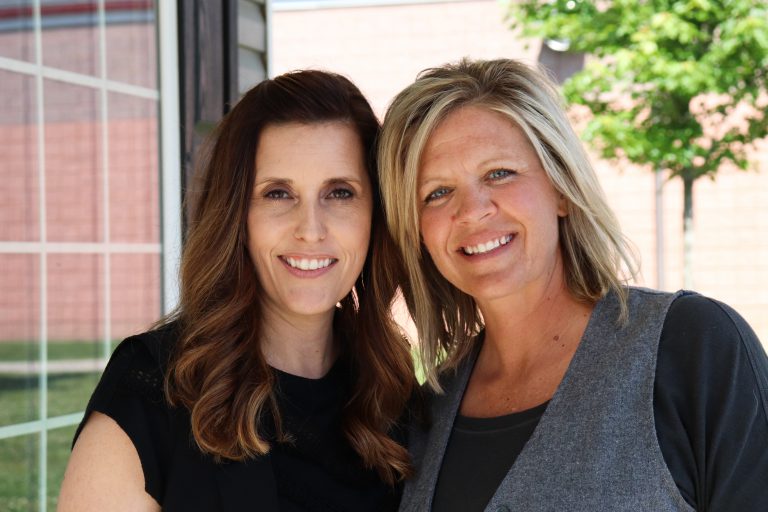Nicole Dempsey remembers crying in a pew at church, watching a video of a woman with long dark hair and deep brown eyes. The woman was talking about her abortion, and how a local organization called Heartbeats helped her heal.
“And I thought, ‘Wow, that’s what’s been missing in my life for 24 years,'” Dempsey says.
This is the second part of a series on women and their experiences with abortion. Read part one here.
“I was never able to necessarily put my finger on what was wrong with me, just knew that I was off.”
That day, Dempsey met the woman on the screen, Melissa Santiago. The two found they shared what they both consider the greatest regret of their lives.
Though both women had abortions around the same time, Santiago says it took her a long time to be able to share her story with women like Dempsey, let alone an entire congregation. A story that began when she had her first child at 16 years old.
As a teen mom, Santiago worked hard to graduate high school and go to college. But when she was 19, she got pregnant again. Her boyfriend wanted her to have an abortion.
“I just felt pressure,” she says. “I felt pressure from him, I felt pressure that he was going to leave if I didn’t. I felt really embarrassed, I’m 19, I had already had a child young and I had gotten myself into that situation again.”
Her boyfriend drove her to a clinic.

“Everyone was kind of just in their own space, and I just remember wanting someone to look at me so we could make eye contact and have some kind of dialogue, because I was really afraid and I really wanted a reason to run out,” Santiago says. “Like I just wanted someone to give me permission.”
As soon as she had the procedure, Santiago says she regretted it. She buried that regret, but after a few decades, a marriage and two more children, she suffered from depression and suicidal thoughts.
That was when she found Heartbeats, a Christian ministry that steers women towards parenting or adoption instead of abortion. The organization offers group sessions for women who regret having abortions.
That group helped Santiago heal, she says. Afterwards, she felt compelled to work for Heartbeats, sharing her experience with others.
“I just wanted to really be available for women and let them know the other side of that decision,” Santiago says. “You’re not going to walk away from this and life is as normal. That’s not how it goes. You’re already a mother. If you end that, then you’re dealing with the fact that you have ended your very own child’s life.”
That message resonated with Nicole Dempsey that day in church. With the help of Heartbeats and Santiago, Dempsey says she was finally able to open up about her abortion story.

“I was walking on the street, headed to a destination in a subdivision at night and recognized a man at the end of the road,” Dempsey says. “It was a summer night, looked like he was going for a walk. And I turned to head toward my destination and within seconds, realized he was directly behind me.”
At 18 years old, Dempsey was raped. A few weeks later, she went to a health center for an abortion.
“It took care of the immediate situation, but the ripple effect that took place because of my decision to have an abortion lasted, surpassing 24 years and two healthy pregnancies, and married to a wonderful man,” she says. “It created more trauma in my life than giving birth to a child, even out of the circumstance of rape.”
Dempsey says the culture of shame surrounding rape and abortion made her feel alone all those years.
“It’s kind of like being stuck in shackles or chains, and the key is on the other side of the room,” she says. “And there’s no one to bring you that key.”
Decades after her abortion, Dempsey says it was Santiago who helped free her from that trauma.
This story was produced by Side Effects Public Media, a news collaborative covering public health.

